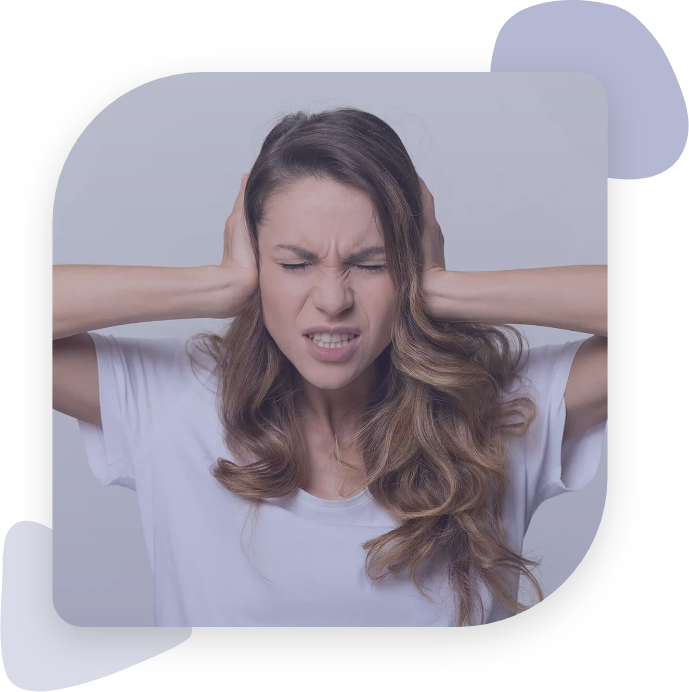PRESSURE IN EAR

WHY DO I FEEL PRESSURE IN MY EARS?
The eustachian tubes are a vital part of the ear that help equalize pressure. When they become narrowed or blocked, they can create painful discomfort that may make it difficult to swallow or yawn. When you feel pain or discomfort, see your doctor and get that hearing issue checked.
THE CONNECTION OF THE EARS AND THE SINUSES
The symptoms of congestion start with stuffy noses and runny noses, progressing to a feeling of pressure in the ears. When this happens, other symptoms like pain and dizziness can occur. There are steps for relief that you should take when you know what’s causing your ears to feel blocked up.
WHAT TO DO TO LESSEN OR PREVENT PRESSURE IN EAR
Check your medicine cabinet – If you feel stuffiness or pain in your ears, an over-the-counter pain reliever can help ease the discomfort.
Decongestants – Clogged ears are one of the most common symptoms of a cold, but there is something you can do to ease your pain. Over-the counter tablets or nasal sprays will unblock and relieve sinus blockage which in turn leads to less clogged ear pressure.
Avoid extreme temperatures – It can be difficult to pinpoint ear pain and congestion as it often comes with the season. Therefore, those who participate in sports or don’t wear a proper hat may find that they experience a lot more pain due to changing temperatures. “Sinus-sensitive” individuals should abstain from hard activities on days that’s too cold or too hot because it could cause exacerbation of those symptoms.
Hydrate – There are many things that can be done to clear your stuffy nasal passages, one of which is drinking more water.
Chin up – If you have a sinus issue or an ear pressure like congestion in the middle of your back, bending forward can make it more difficult to breathe and may raise the pressure. When you are experiencing pressure in your ears, you might want to stay away from activities where you need to be bent over – like yoga.
PRESSURE IN EAR AND DIZZINESS
You may experience discomfort which can take over your daily life. There are some ways that may help lessen the most severity or frequency with such symptoms. For starters, you can try to avoid caffeine, alcohol, salt, and other stimulants.
TRAVELLING WITH PRESSURE IN EAR
When you experience pressure change during traveling, the eustachian tubes in your ears don’t have time to adapt or catch up with adaptation of air pressure.
Pressure in the ear can also happen with other scenarios when there happen to be sudden elevation changes such as in cars driving through mountain roads or people riding up elevators.
Ear popping can be a signal of dryness in the ears, or when it is also accompanied by pain and discomfort, it may indicate that the pressure in your ears has been too high for too long. If this happens during a flight, try some decongestant medication (types include pills and sprays), or try chewing gum to stimulate saliva production.
When divers have problems with their ears, it can lead to injuries. Scuba divers should watch out for signs of trouble so that they can avoid discomfort and potential injury if they stick around a certain pressure level in the water.
OTITIS MEDIA
An individual can experience ear pressure for many reasons, and one of these is otitis media. This infection occurs when the eustachian tube isn’t draining properly which leads to fluid buildup that can promote growth of viruses or bacteria.
Swimmer’s ear is a bacterial infection of the outer portion of your ear that can be caused by bacteria found in water. This condition affects not only parts of our body but also makes us feel as if we are underwater with painful pressure and fluid buildup.
Acute otitis media is a common type of infection that can lead to ear pain or fever. It is caused by many different types of germs and viruses, but in the U.S., it’s most often associated with bacteria or mold spores in an outdoor pool.
Some of the symptoms associated with an acute otitis media with effusion include impaired hearing and a build up of fluid within the eardrum. Another common symptom of ear pressure is a feeling that your ears are blocked or clogged. Other symptoms include: pain, dizziness and nausea–often when you’re trying to swallow something like food/drink; ringing in the affected area(s) which can be constant (tinnitus), intermittent with periods where it’s gone for hours at time before coming back again.
You may also experience some hearing loss on either end if there has been trauma caused by an infection.
WHEN TO SEE A DOCTOR
Ear pain could be a symptom of more than one disease or condition. It is important to note that ear discomfort often accompanies other symptoms such as fever, headache, severe burning sensation in the face and swollen neck. Make sure you see your doctor if these signs are accompanied by ear pain for longer than an hour; it might mean something else altogether.
TREATING PRESSURE IN EAR
Finding relief from ear pressure can be challenging and many people may not know where to start. Keep in mind though that there are multiple treatment options available. Every person’s body responds differently so talk to your doctor about what will work best for you.
If you’re experiencing frequent and uncomfortable pressure in your ear, it’s time to consult an audiologist. Contact us today to schedule an appointment!
Hear Better. Live Better.
-
130 S. State Road,
Suite 201 Springfield, PA 19064 -
905 West Sproul Rd,
Suite 201 Springfield, PA 19064 - 610-438-5203
